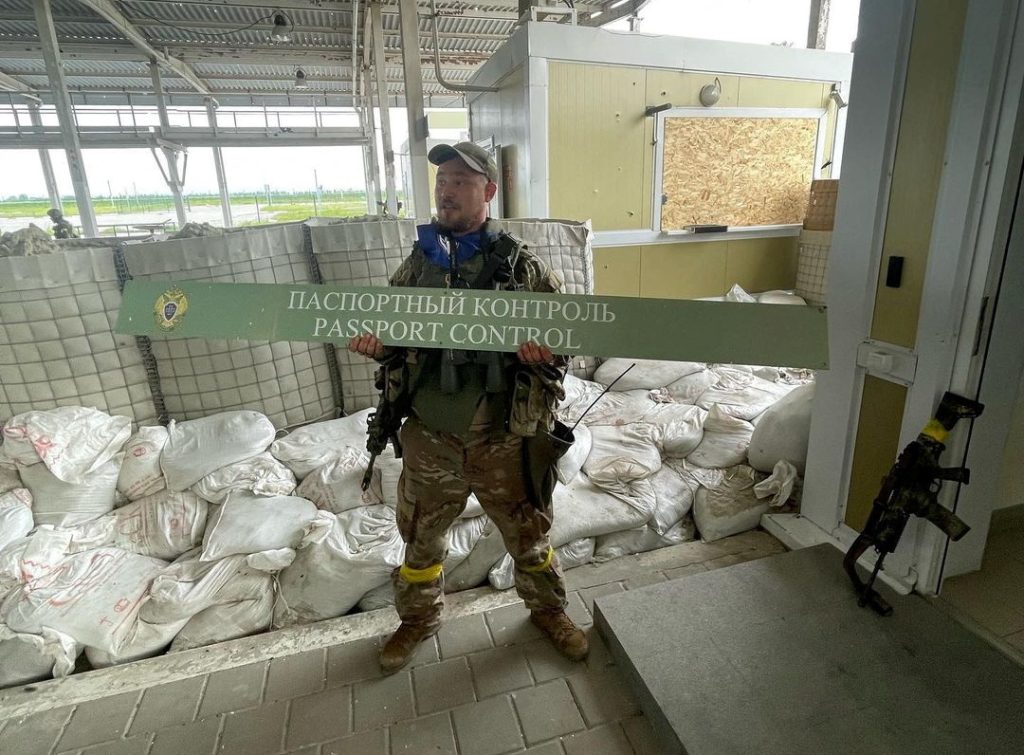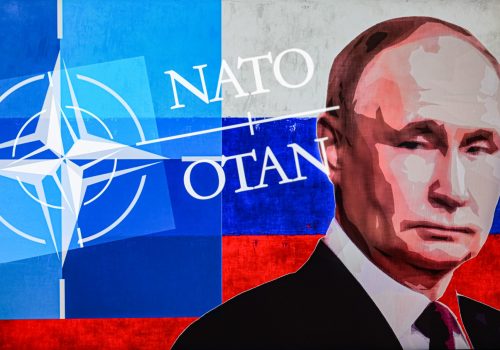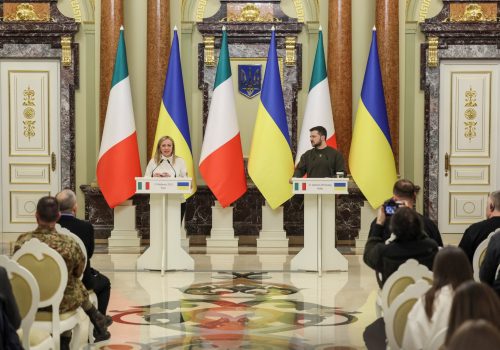Ukrainians woke up on Monday morning to the unexpected news of an unfolding military operation across the border in Russia’s Belgorod Oblast. The incursion was reportedly the work of two Ukraine-based Russian opposition militias, the Free Russia Legion and the Russian Volunteer Corps, who claimed the attack marked the start of a campaign to “liberate Russia.”
Further details remain confused, with conflicting information still circulating on Tuesday evening regarding the fate of the Russian militias. However, the mere fact of the incursion is itself noteworthy and may be part of Ukrainian shaping operations ahead of a widely anticipated counteroffensive. By exposing the weakness of Russia’s largely undefended borders, Ukraine could succeed in forcing Putin to reluctantly pull troops out of Ukraine in order to defend his own country.
At the official level, Ukraine has denied any involvement in the Belgorod border raid. However, while Ukrainian presidential advisor Mykhailo Podolyak declared that Ukraine “has nothing to do with it,” he could not resist mocking the Kremlin. “As you know, tanks are sold at any Russian military store, and underground guerrilla groups are composed of Russian citizens,” he tweeted in an obvious reference to the transparent lies employed by Vladimir Putin during the 2014 Russian military seizure of Ukraine’s Crimean peninsula. These tongue-in-cheek comments were widely interpreted as confirmation that Ukraine was now using Russia’s own hybrid war playbook against the Putin regime.
Podolyak was not the only Ukrainian to revel in what many saw as Russia receiving a long overdue taste of its own medicine. As news of the Belgorod incursion spread, Ukrainian social media was flooded with memes proclaiming the establishment of the “Belgorod People’s Republic,” playing on earlier Kremlin disinformation about a “Ukrainian civil war,” and favorably comparing the speed of the Belgorod advance with the Russian army’s own glacial progress in eastern Ukraine.
Predictably, few in Russia saw the funny side. Instead, reactions ranged from anger and indignation on Kremlin TV to alarm over the apparent ease with which the Ukrainian-backed Russian militias were able to penetrate the border and enter the Russian federation. The outspoken leader of Russia’s mercenary Wagner Group, Yevgeny Prigozhin, used the incident to launch another of his regular attacks on the Russian military establishment. “As far as I know, the military is not bothering with the strengthening of our borders,” he commented.
Stay updated
As the world watches the Russian invasion of Ukraine unfold, UkraineAlert delivers the best Atlantic Council expert insight and analysis on Ukraine twice a week directly to your inbox.
While the Belgorod incursion has undoubtedly lifted Ukrainian spirits and plunged Russia into a minor panic, this was not just an example of Ukraine’s world-class trolling skills. The attack has very real implications for Russian national security and is a huge personal embarrassment for Vladimir Putin, who prides himself on his strongman image. After all, what kind of strongman ruler cannot even secure the borders of his own realm?
It is too early to predict the exact nature of the Russian response to events in Belgorod Oblast, but it seems inevitable that any reaction must necessarily include a strengthening of the entire Russia-Ukraine border. To achieve this, Moscow must find the additional soldiers and weapons systems to reinforce a frontier stretching for approximately one thousand kilometers beyond the front lines of the current military conflict.
At a time when the vast majority of the Russian military’s available forces have already been deployed in Ukraine, this will be no easy task. Indeed, British Defense Minister Ben Wallace claimed in February that 97% of the Russian army is already in Ukraine. Any efforts to bolster defenses along the Russian border with Ukraine will likely mean reducing this presence.
Eurasia Center events

Russia’s military equipment shortages were recently laid bare by the country’s exceptionally modest Victory Day celebrations, with traditional parades canceled in a string of cities and a solitary tank taking part in the flagship event on Moscow’s Red Square. The manpower situation in the Russian army is unlikely to be much better. Russian losses during the first six months of the Ukraine invasion were so severe that Putin was forced to launch the country’s first mobilization since World War II in September 2022. However, many of the 300,000 extra troops mobilized late last year have already become casualties, with US officials estimating Russian losses since December at 100,000.
This poorly prepared, badly mauled, and increasingly demoralized Russian invasion force is currently bracing to face a major Ukrainian counteroffensive that has been under preparation for the past half year. Tens of thousands of fresh Ukrainian soldiers have undergone training in NATO countries, while Ukraine has received a wide array of new equipment including modern battle tanks, armored vehicles, and long-range cruise missiles. The last thing Russian commanders would want to do at this critical point in the invasion is withdraw soldiers from the front lines, but that is exactly what may now happen.
As Ukraine continues to set the stage for the coming offensive, shaping operations could include further border incursions designed to embarrass the Kremlin and force Russia to thin the ranks of its invasion army. Any attempts to penetrate deep inside Russia or establish bridgeheads on Russian territory would probably be frowned upon by Ukraine’s Western partners, but there is unlikely to be much opposition to additional destabilizing border raids.
This week’s Belgorod incident remains shrouded in mystery but it may come to be seen as a symbolically significant moment in the Russian invasion of Ukraine. For the past fifteen months, Russia has attacked Ukraine with impunity while assuming Ukraine would never dare to strike back inside Russia. That complacency has now been very publicly shattered, creating a serious security headache for the Kremlin. Leaving Russia’s borders largely undefended is no longer an option, but reinforcing them will inevitably weaken Putin’s army in Ukraine. Ukraine’s commanders may have just outsmarted their Russian counterparts yet again.
Peter Dickinson is Editor of the Atlantic Council’s UkraineAlert Service.
Further reading
The views expressed in UkraineAlert are solely those of the authors and do not necessarily reflect the views of the Atlantic Council, its staff, or its supporters.

The Eurasia Center’s mission is to enhance transatlantic cooperation in promoting stability, democratic values and prosperity in Eurasia, from Eastern Europe and Turkey in the West to the Caucasus, Russia and Central Asia in the East.
Follow us on social media
and support our work
Image: A member of the Russian Volunteer Corps poses for a picture at Graivoron border crossing in Kozinka, Belgorod region, Russia. May 23, 2023. (Russian Volunteer Corps/Handout via REUTERS)




